Read testimonies from the recipients of Future Earth travel grants for early career professionals
In 2017, Future Earth offered rolling grants to support the travel of early career researchers and other professionals in global sustainability. Here, the recipients of these grants talk about their backgrounds and next steps. These talented individuals come from Brazil, Kenya, India and other nations around the world and work on topics ranging from snow leopard ecology to gender justice. With support from Future Earth, they traveled to sustainability events across the globe to share their expertise and learn from other leaders in research, policy, business, civil society and more.
Future Earth provides diverse support to professionals beginning their careers in sustainability through the Early Career Professionals Network. You can learn more about this network and how to get involved here.
Mohammad Faiz Alam
About me: I am currently working with the International Water Management Institute in Delhi where my research focuses on the role and importance of groundwater for food security and disaster risk reduction on global and local scales.
What I did with my support: I attended the 8th International Young Water Professionals Conference in Cape Town, South Africa, during 10 to 13 December 2017. This conference brought together water, environment and other related young professionals from around the globe to provide them with capacity building and skills development opportunities. Along with attending several professional sessions, I helped to organise a team for the workshop “Building the next generation of Water-Wise Leaders.” The aim of this workshop was to impart knowledge on the principles of water wise cities and to develop a network of connected individuals driving change in their cities and sharing experiences.
What’s next: The conference provided a unique platform for me to deepen my knowledge, engage with diverse stakeholders and network with a diverse group of water industry experts and colleagues from around the globe for future collaboration. Being part of Future Earth network, I was able to engage and promote its activities and mission among young professionals from all over the world that will potentially lead to future participation and collaboration.
Patrick Bigger
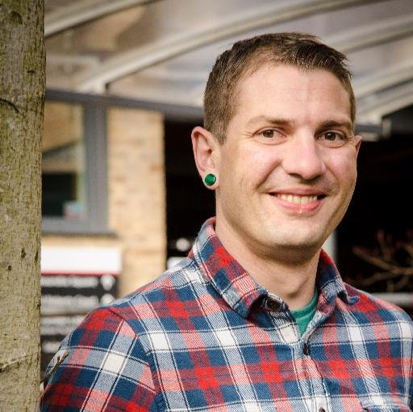 About me: I am a lecturer at the Lancaster Environment Centre in the United Kingdom where I conduct research on a wide variety of financial products designed to achieve environmental aims, from adapting to climate change to preventing biodiversity loss.
About me: I am a lecturer at the Lancaster Environment Centre in the United Kingdom where I conduct research on a wide variety of financial products designed to achieve environmental aims, from adapting to climate change to preventing biodiversity loss.
What I am doing with my support: With the support of Future Earth, I attended a symposium at the Yale School of Management, convened by the Journal of Environmental Investing (JEI), on “The State of Environmental, Social, and Governance Metrics in Environmental Finance.” The symposium brought together the authors of papers in a special issue of the JEI to discuss how measurement practices are impacting the growth and deployment of different environmental financial mechanisms. This was an excellent opportunity for academics to engage with financial practitioners to share insights and critiques.
Further, the event facilitated new relationships for future work on improving the environmental credentials of rapidly growing green financial products, such as green bonds, which was what I discussed at Yale. These aims are very much in line with those of Future Earth, and dialogue at the event helped identify the priority issues for further research, particularly among early career scholars who were seeking to design timely, high impact research projects.
What’s next: To maximise the productivity of the trip, I initially traveled to Washington, D.C., where I conducted a week of fieldwork on the issue of green bonds and water sustainability. In addition, I would like write a blog for Future Earth to summarise the discussion at the workshop, identifying the key themes and lingering disconnections between metric development and usage for different financial products and/or between academics and practitioners.
Joanna Elizabeth Emma Boehnert
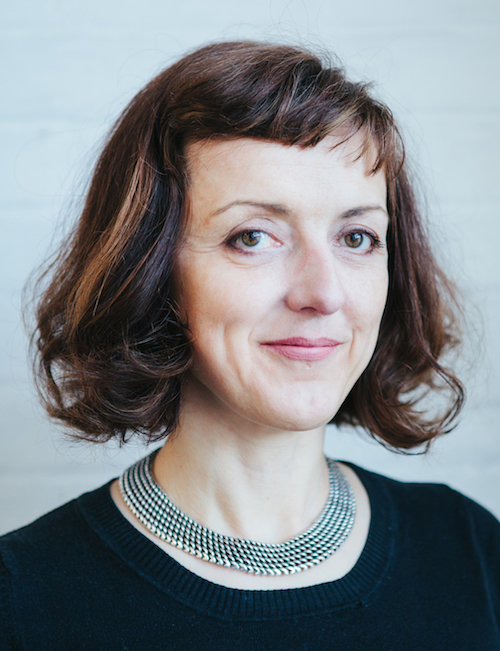 About me: I am a design researcher with expertise on the visual communication of complex environmental problems, environmental learning and the politics of ecological transitions. I recently finished a book titled “Design/ Ecology/ Politics: Towards the Ecocene” that will be published by Bloomsbury Academic in January 2018. In this book, I describe how the discipline of design is poised to facilitate the construction of sustainable futures – but only once it is informed by ecological literacy and critical perspectives (based on the insights of the physical and social sciences). An emergent Ecocene depends on the design of new ways of living that prioritise ecological and social values.
About me: I am a design researcher with expertise on the visual communication of complex environmental problems, environmental learning and the politics of ecological transitions. I recently finished a book titled “Design/ Ecology/ Politics: Towards the Ecocene” that will be published by Bloomsbury Academic in January 2018. In this book, I describe how the discipline of design is poised to facilitate the construction of sustainable futures – but only once it is informed by ecological literacy and critical perspectives (based on the insights of the physical and social sciences). An emergent Ecocene depends on the design of new ways of living that prioritise ecological and social values.
What I am doing with my support: The travel grant funded my participation in the Transformations 2017 conference in Dundee, Scotland, in August 2017. There, I made a presentation titled “Designing the Ecocene” and facilitated a discussion on enabling transformative design. My participation in this event gave me a chance to build relationships among the Future Earth community.
What’s next: I will promote Future Earth in design events, such as the Relating Systems Thinking and Design 2017 conference in Oslo in October 2017. I also hope to find new collaborators interested in design, communication and/or systems mapping on issues of sustainability.
Noelia Zafra Calvo
About me: I am a conservation social scientist who works to bring social justice into conservation practice and policy (Aichi Target 11 and Sustainable Development Goal 15).
What I did with my support: I got a waived fee to attend the 2017 International Conference on Sustainability Science in Stockholm. Attending this conference allowed me to integrate my work into a sustainability science framework and participate in Future Earth’s Knowledge-Actions Networks.
What’s next: This new knowledge and network was essential for developing my research interests within the frame of sustainability science and to foster social equity in the conservation of nature as part of the Future Earth initiative.
Leopoldo Cavaleri Gerhardinger
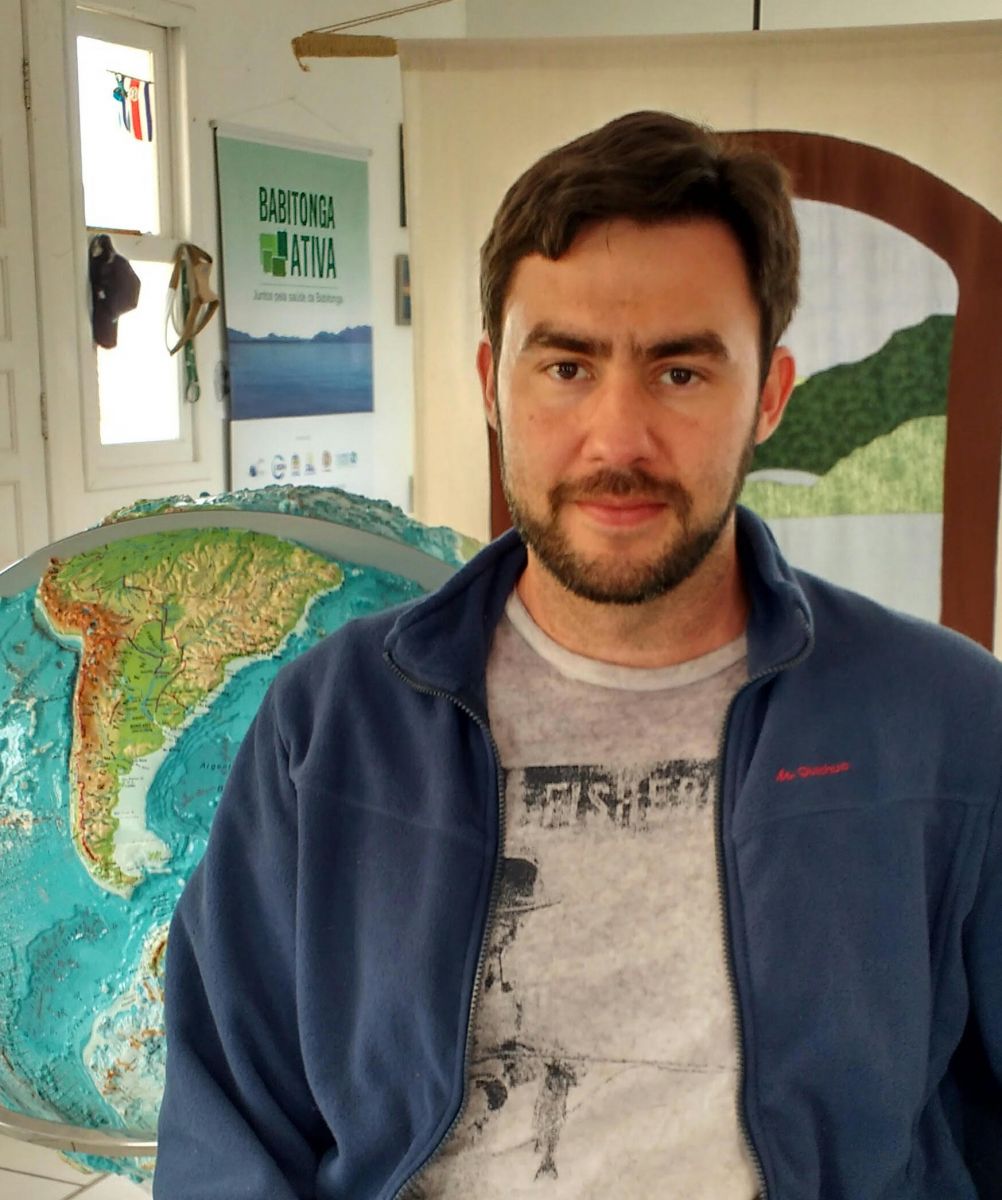 About me: I’m a post-doc researcher at the Oceanographic Institute of University of São Paulo and member of Earth System Governance, one of Future Earth’s global research projects. I work on topics ranging from marine fish ecology and ethnoecology to, most recently, the theory and practice of multi-level ocean governance with a focus on Brazil and the Atlantic. I’m actively involved with various academic-based and societal knowledge-to-action networks. In addition, I’m also collaborating as science advisor to the Brazilian government in the early evolution of a national marine spatial planning process for the country’s Exclusive Economic Zone (over four million square kilometres of ocean).
About me: I’m a post-doc researcher at the Oceanographic Institute of University of São Paulo and member of Earth System Governance, one of Future Earth’s global research projects. I work on topics ranging from marine fish ecology and ethnoecology to, most recently, the theory and practice of multi-level ocean governance with a focus on Brazil and the Atlantic. I’m actively involved with various academic-based and societal knowledge-to-action networks. In addition, I’m also collaborating as science advisor to the Brazilian government in the early evolution of a national marine spatial planning process for the country’s Exclusive Economic Zone (over four million square kilometres of ocean).
What I did with my support: June 2017 was a very special month for the global ocean agenda, and Future Earth’s travel grant allowed me to take part in vibrant meetings in Brussels and New York. First, I attended a two-day scoping workshop hosted by Future Earth and Belmont Forum at the European Union headquarters in Brussels to support the co-design of a transdisciplinary (TD) ocean research funding opportunity to be launched in 2018.
On the following week, and inspired by the Brussels meeting, I naturally carried a fresh and sharp sense of opportunity to a turning moment in global ocean affairs – the first ever United Nations Conference exclusively dedicated to the global ocean. The outcomes of this conference are helping the global community find novel ways of partnering around the implementation of Sustainable Development Goal (SDG) 14. Amid hundreds of highly relevant parallel meetings and topics, I joined other International Council for Science (ICSU) and Future Earth representatives to feed debates around science and technology (see here and here), small-scale fisheries (see here and here, page 39), pollution and ocean governance (see here). So far, 1393 voluntary commitments were publicly declared, 13 of which specifically highlighted the key role of early career researchers in the implementation of SDG-14.
What’s next: This series of meetings offered early career researchers and, in particular, the Future Earth Working Group of the Early Career Network of Networks, the opportunity to join forces with international research and policy communities, in what can be regarded the waking times of transdisciplinary ocean science. Back in Brazil, I am left with high expectations. I also have renewed enthusiasm and knowledge to support the connection of the global research and policy communities’ vast, but still largely fragmented, knowledge and action capacities into coherent narratives of change towards ocean sustainability at multiple levels. The upcoming work of Future Earth’s Ocean Knowledge-Action Network will offer a vibrant, international platform to leverage the contribution of early career researchers and professionals in the upcoming years.
Abhishek Ghoshal
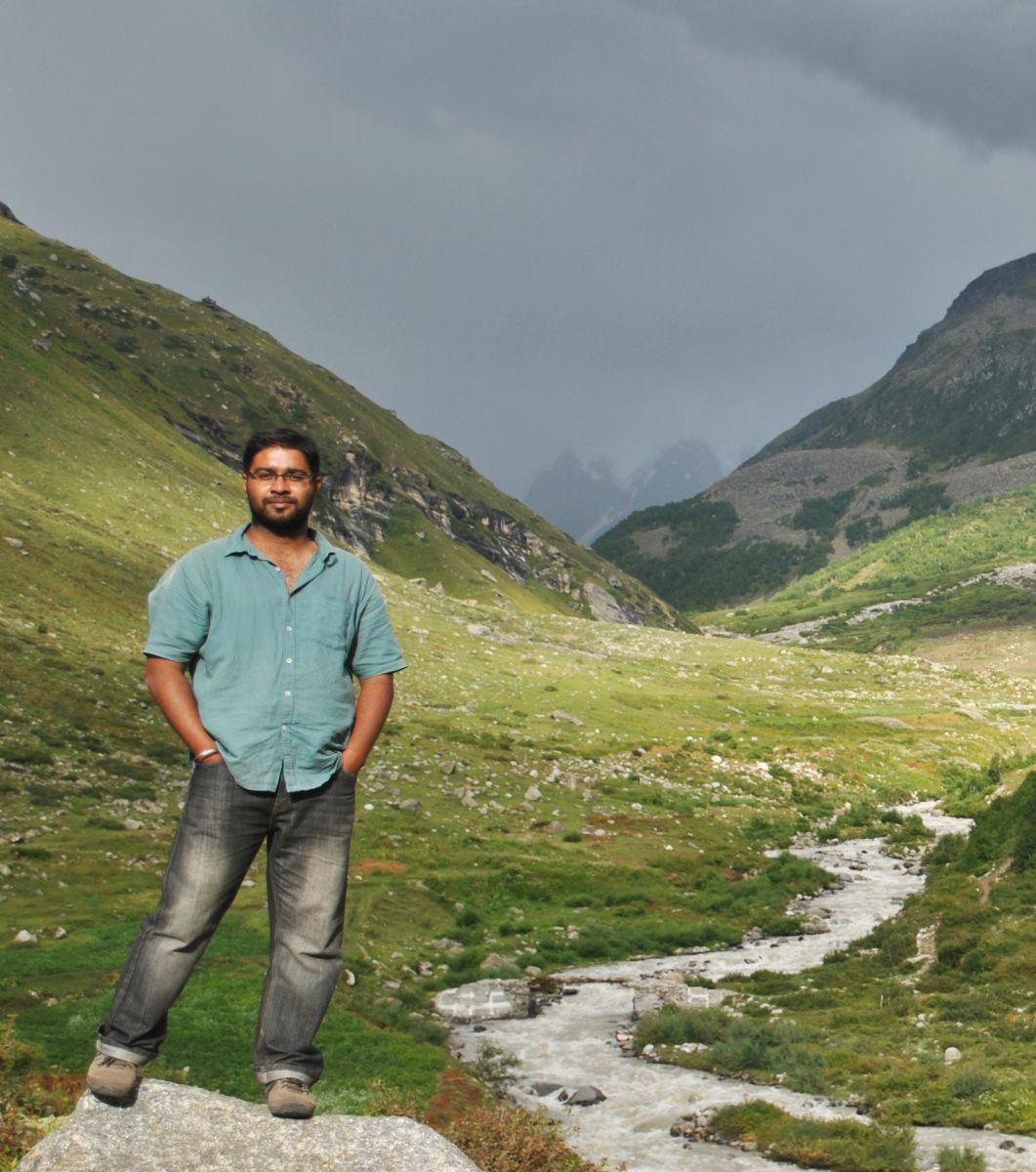 About me: I am a wildlife biologist working on understanding factors affecting distribution and abundance of snow leopards and their primary prey at multiple spatial scales in the Indian Himalayas.
About me: I am a wildlife biologist working on understanding factors affecting distribution and abundance of snow leopards and their primary prey at multiple spatial scales in the Indian Himalayas.
What I did with my support: I delivered a talk at the International Mammalogical Congress (IMC12) in Perth, Australia. I have actively discussed Future Earth with the organising members of the congress, other eminent scientists and delegates and encouraged peers to join the Future Earth network. University of Western Australian and Curtin University will share the Future Earth website and information with their students. I have already shared the news of my association with Future Earth extensively with my peers at the Nature Conservation Foundation, Snow Leopard Trust, Wildlife Institute of India, National Centre for Biological Sciences and Indian Institute of Science through emails and on social networks (e.g. IMC’s Twitter and Facebook pages). I also shared with other networks of researchers working on ecology, conservation and sustainable development involving about 5000 researchers. They include Young Ecologists Talk and Interact (YETI), the largest group of early career ecologists and conservationists in India and Students Conference on Conservation Science (SCCS) in Bangalore.
What’s next: In the future, I will work on developing a post-doc in collaboration with a scientist from the University of Adelaide. Additionally, I would like to suggest that Future Earth become associated with YETI. This group consists of young researchers in the field of ecology and conservation in India. The next YETI conference will take place in January 2018. This will provide a wonderful opportunity for engaging with the vast fraternity of Indian sustainability researchers.
Gabriel Habiyaremye
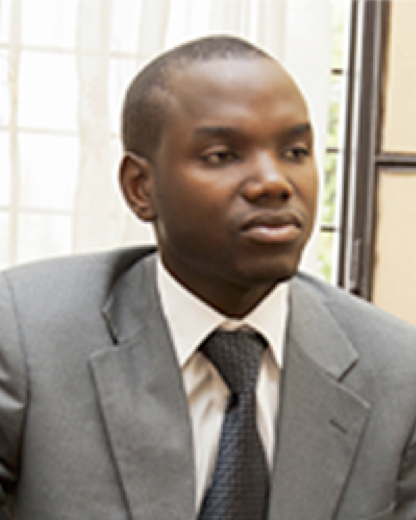 About me: I am the Dean of Faculty of Environmental Studies at the University of Lay Adventists of Kigali, Rwanda. My research interests include climate change impacts on water resources and food security. I also founded the Integrated Sustainability Center in Rwanda in 2016 after I was inspired by attended the Future Earth Young Scientists Networking Conference on Integrated Science in Italy in 2015. The centre seeks to contribute to national and regional development through environmental, economic and social initiatives and research for community welfare.
About me: I am the Dean of Faculty of Environmental Studies at the University of Lay Adventists of Kigali, Rwanda. My research interests include climate change impacts on water resources and food security. I also founded the Integrated Sustainability Center in Rwanda in 2016 after I was inspired by attended the Future Earth Young Scientists Networking Conference on Integrated Science in Italy in 2015. The centre seeks to contribute to national and regional development through environmental, economic and social initiatives and research for community welfare.
I have been involved in Future earth activities on evidence and policy, including around the Water-Energy-Food Nexus. I was also involved in the first scoping workshop organised by Future Earth on the development of an integrative Ocean Knowledge-Action Network in 2016.
What I did with my support: In June 2017, I highlighted Future Earth’s activities, including the outcomes of the aforementioned workshop, at the Intergovernmental Oceanographic Commission (IOC) of UNESCO Regional Training and Research Center on Ocean Dynamics and Climate in China.
What’s next: I presented on the Water-Energy-Food Nexus at the 5th iLEAPS International Science Conference in Oxford, UK, and its associated workshop on “Effective Communication for Effective Science.” This allowed me to engage within the iLEAPS early career researchers network to promote and progress the Future Earth Knowledge-Action Network.
Maria Jose Martínez Harms
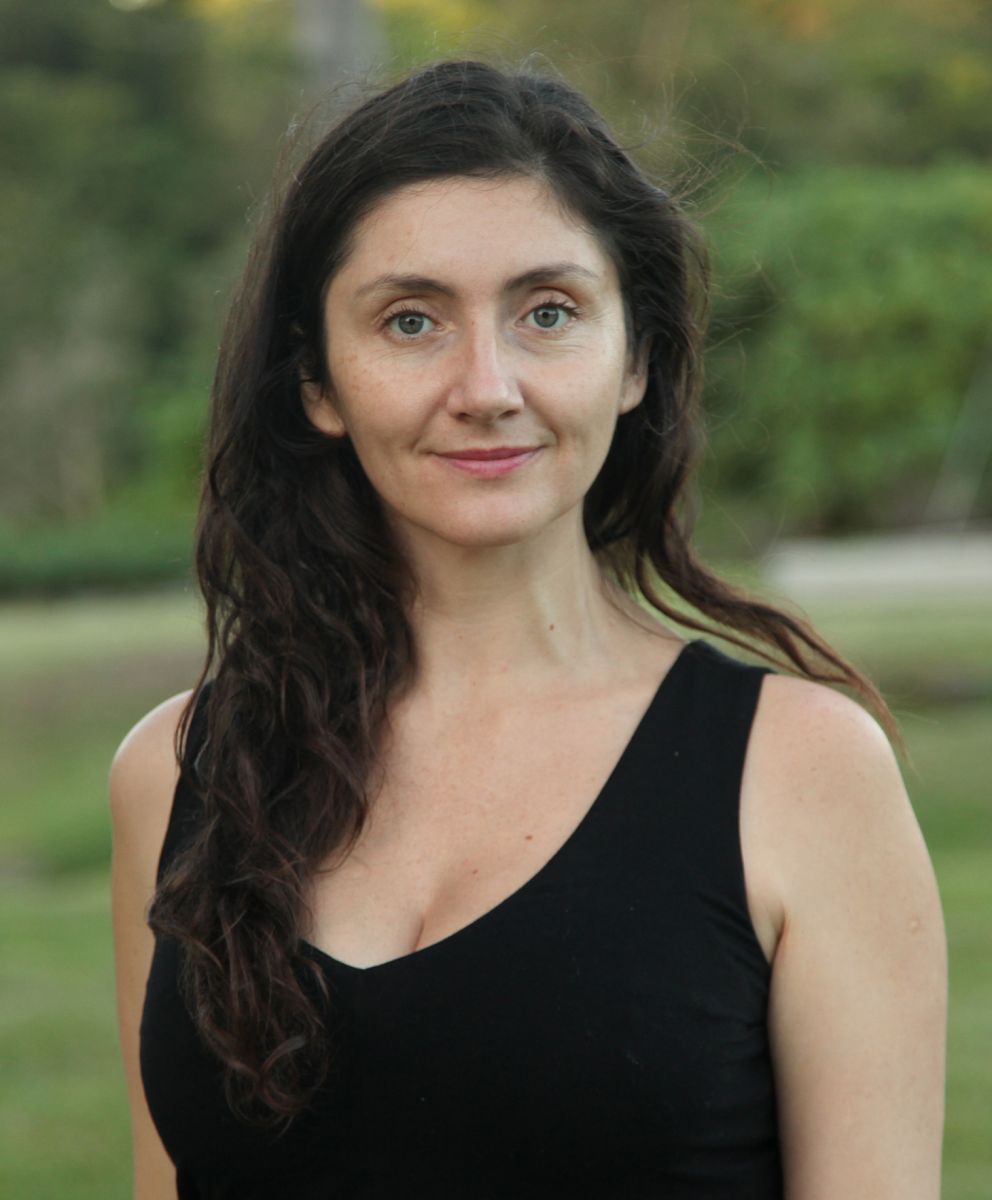 About me: I am a spatial ecologist researcher from Australia’s Centre of Excellence for Environmental Decisions interested in the science-policy interface for ecosystem services and biodiversity to inform land and seascape planning. I just completed a Ph.D. in Conservation Science, and my thesis focused on synthesising ecosystem services research to provide evidence that can be used to improve environmental decision-making. By applying decision support tools like scenario analysis and spatial planning approaches, I explore trade-offs and prioritise management alternatives that balance conservation, development and social objectives. My research aims to inform international and national conservation policy on best practices to manage multi-functional land and seascapes for the sustainable provision of ecosystem services.
About me: I am a spatial ecologist researcher from Australia’s Centre of Excellence for Environmental Decisions interested in the science-policy interface for ecosystem services and biodiversity to inform land and seascape planning. I just completed a Ph.D. in Conservation Science, and my thesis focused on synthesising ecosystem services research to provide evidence that can be used to improve environmental decision-making. By applying decision support tools like scenario analysis and spatial planning approaches, I explore trade-offs and prioritise management alternatives that balance conservation, development and social objectives. My research aims to inform international and national conservation policy on best practices to manage multi-functional land and seascapes for the sustainable provision of ecosystem services.
What I did with my support: I attended the Future Earth Natural Assets Knowledge-Action Network definition workshop in Bern, Switzerland, on 12 to 13 September 2017. I attended this workshop as part of a small team of researchers who are conducting a literature review on the terms “natural assets,” “natural capital,” “nature-based solutions” and “ecosystem services.”
What's next: This experience was very advantageous for my career as an early stage researcher because I had the opportunity to collaborate and network with fellow researchers and practitioners who are working towards global environmental sustainability.
Marcello Hernandández-Blanco
 About me: I am currently a PhD scholar on Ecological Economics at the Australian National University, my research focuses on natural capital in Costa Rica, from economic valuation to new financial mechanisms and institutional arrangements. I am also a conservation photographer, my mission is to educate and inspire people through art to take action on environmental conservation (you can see my work at www.marcello.photo).
About me: I am currently a PhD scholar on Ecological Economics at the Australian National University, my research focuses on natural capital in Costa Rica, from economic valuation to new financial mechanisms and institutional arrangements. I am also a conservation photographer, my mission is to educate and inspire people through art to take action on environmental conservation (you can see my work at www.marcello.photo).
What I did with my support: The generous support provided by Future Earth allowed me to attend to the Natural Assets KAN workshop at the University of Bern, where I was part of a team of early career researchers that worked on the definition of natural capital and ecosystem services, which was presented at the workshop.
What’s next: Attending the workshop allowed me to meet incredible people, brilliant at their work and most importantly great human beings. I keep in touch with all my early career colleagues, and I have contacted other experienced scientists from the workshop to look for ways of collaboration, especially for conducting natural capital research in Latin America. In addition, I have been in conversations with Future Earth exploring the possibility of establishing a regional Hub in Costa Rica, in order to take advantage of the research efforts and policy making that the country is doing on sustainable development.
Alexandra Hicken
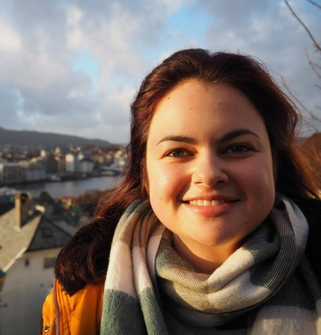 About me: I’m currently the Executive Director for the Network of Early Career Sustainable Scientists and Engineers (NESSE), a 350-member strong organisation that aims to empower early career sustainable scientists to tackle today’s environment and energy challenges and move towards a sustainable future. Aside from this, I am a researcher in Organometallic Chemistry at Imperial College London, whereby I investigate the fundamental transformations of small, environmentally hazardous molecules, such as carbon dioxide.
About me: I’m currently the Executive Director for the Network of Early Career Sustainable Scientists and Engineers (NESSE), a 350-member strong organisation that aims to empower early career sustainable scientists to tackle today’s environment and energy challenges and move towards a sustainable future. Aside from this, I am a researcher in Organometallic Chemistry at Imperial College London, whereby I investigate the fundamental transformations of small, environmentally hazardous molecules, such as carbon dioxide.
What I am doing with my support: The support from Future Earth allowed me to travel to the International Conference on Sustainable Development (ICSD) in New York city in order to present NESSE’s vision for the transformation of sustainable science culture at universities. Through presenting case studies from two of NESSE’s Sustainable Science Groups, I promoted the great work achieved by early career networks across the world and also supported Future Earth’s global sustainability capacity building approach.
What’s next: Presenting at the ICSD gave NESSE a great platform to expand its own network in order to support more Sustainable Science Groups. NESSE currently has nine groups across three continents and see them as the key to transforming the sustainable science culture at universities on a global scale.
MD Khalid Hossain
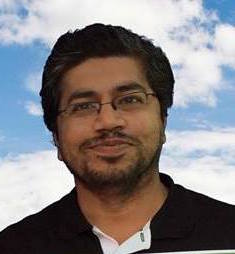 About me: I work for Oxfam in Bangladesh, which seeks to achieve a number of targets for different Sustainable Development Goals (SDGs) in the areas of economic empowerment, climate change adaptation and mitigation, water management, access to water and sanitation, gender justice and developing community leadership and learning for influencing.
About me: I work for Oxfam in Bangladesh, which seeks to achieve a number of targets for different Sustainable Development Goals (SDGs) in the areas of economic empowerment, climate change adaptation and mitigation, water management, access to water and sanitation, gender justice and developing community leadership and learning for influencing.
What I am doing with my support: With the support of Future Earth, I attended all of the sessions during the first day of the 2017 International Conference on Sustainability Science, which comprised different SDG Lab sessions. As the Economic Justice and Resilience Lead of Oxfam in Bangladesh, I manage both rural and urban programmes. Consequently, all the SDG Lab sessions were highly relevant for me to get ideas for Oxfam’s future programme design in Bangladesh. Interaction with early career and experienced researchers would pave the way for future collaboration. While attending the conference, I promoted Future Earth through social media where I have followers who are leading professionals on SDG issues in Bangladesh.
What’s next: My career will be strengthened through the new knowledge gathered and integrated into my work. I will use the new knowledge to design future programmes for Oxfam in Bangladesh and will explore collaborative work with the connections that I built during the conference.
Dhanasree Jayaram
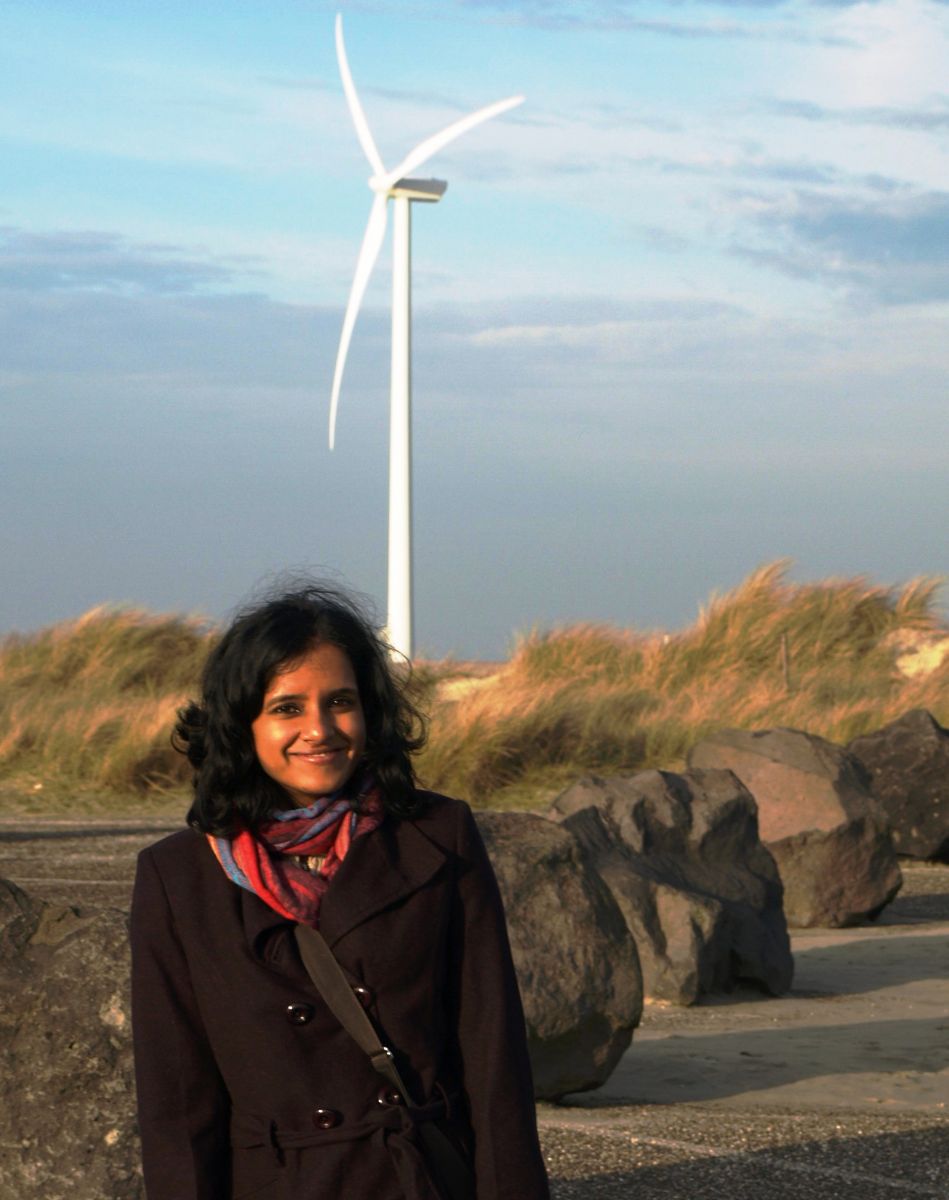 About me: I am a research scholar at Manipal University (submitted doctoral thesis, pending defense) and Project Associate at Manipal Advanced Research Group (MARG) in Karnataka, India. My doctorate thesis is entitled “Military Dimensions of Environmental Security: An Indian Perspective.” I am also Research Fellow at the Earth System Governance project and Editorial Coordinator of the Science, Technology and Security forum (STSf).
About me: I am a research scholar at Manipal University (submitted doctoral thesis, pending defense) and Project Associate at Manipal Advanced Research Group (MARG) in Karnataka, India. My doctorate thesis is entitled “Military Dimensions of Environmental Security: An Indian Perspective.” I am also Research Fellow at the Earth System Governance project and Editorial Coordinator of the Science, Technology and Security forum (STSf).
In 2011, I received the Outreach Fellowship of Centre for Air Power Studies (CAPS) – a defense think tank in New Delhi, India. Through that fellowship, I published a single-authored volume, “Breaking out of the Green House: Indian Leadership in Times of Environmental Change,” in 2012. With a deep-rooted interest in environmental security research, I mostly work on the military-environmental security interface (through an interconnected web of various frameworks and concepts like Humanitarian Assistance and Disaster Relief, HADR), particularly in the Indian context; geopolitics of environmental change; climate policy, diplomacy and governance; India’s environmental security scenario, along with its positions and policies on climate change; and South Asian regional environmental security complex.
What I am doing with my support: With generous support from Future Earth, I attended and presented two papers at the 2017 Lund Conference on Earth System Governance: “Allocation & Access in a Warming and Increasingly Unequal World,” held during 9 to 11 October 2017. My papers were “The ‘Three Geos’: A New Approach to Study International and Environmental Security Scenarios” and “Environmental Security, Governance and the Armed Forces: An Indian Perspective.” Both these papers were oriented toward a security perspective on environmental issues, particularly with respect to the role of the military in environmental security and governance. This innovative angle will add to Future Earth’s extensive work on global environmental change and help develop a network of scholars interested in environmental security research, as well as promote that research through Future Earth’s Knowledge-Action Networks.
What’s next: I wrote a paper based on the presentations, which I intend to revise and seek to publish in a high-impact and peer-reviewed journal. Besides, I plan to write an article or a blog to promote my and Future Earth’s research. In addition, I will host a webinar to reflect the need for integration of environmental security researches, corresponding to the Future Earth agenda.
In the medium- and long-term, I would like to use the experience gained at the conference to improve my research (post-doctoral) through various activities, including sharing the platform of Future Earth and communicating sustainability studies and environmental security research with students and researchers at Manipal University and other academic institutions in India. I will also provide policy recommendations through collaborative, transdisciplinary and transnational research that could integrate environmental security with security policy and strategy at both national and international levels.
Watch a video featuring Dhanasree Jayaram from the conference in Lund here.
Yengen Rohdof Lactem
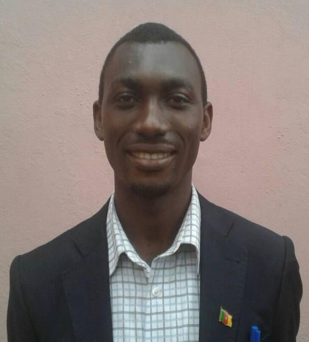 About me: I am a volunteer working with Pro Climate International Cameroon. My organisation is involved in sustainable development projects, such as adaptation strategies to mitigate climate change (community poverty alleviation and clean air projects), waste management, ecotourism and community and school sensitisation programs on environmental issues in the suburbs of Cameroon.
About me: I am a volunteer working with Pro Climate International Cameroon. My organisation is involved in sustainable development projects, such as adaptation strategies to mitigate climate change (community poverty alleviation and clean air projects), waste management, ecotourism and community and school sensitisation programs on environmental issues in the suburbs of Cameroon.
What I did with my support: The travel grant enabled me to attend and participate in the 2nd Annual International Trash Conference & Exhibition (ITCE) on 5 to 6 October 2017 in Warri, Delta State, Nigeria. Through this experience, I met like-minded people with whom I built my sustainability network. This event helped boost my professional development and broaden my international horizon. At the conference, I made a presentation to promote the vision and the mission of Future Earth, as well as the development projects of my home organization.
What’s next: When I come back to Cameroon, I hope to inspire and motivate young people to get involved in sustainability activities and be more productive in empowering youth in new dimensions drawing on the knowledge that I gained from the conference. I will contribute to building a partnership between Future Earth and Pro Climate International, which will create many opportunities, including institutional collaboration on research and projects.
Divya Narain
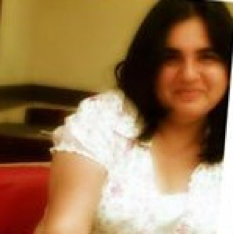 About me: I am a sustainability practitioner and early career researcher and focus on “Business and Biodiversity” and “Biodiversity Offsetting Policy.” I completed my Master’s in Biodiversity Conservation and Management from the University of Oxford in 2011. Since then, I have been associated with the Mumbai-based consultancy Environmental Management Centre. My first peer-reviewed publication, a correspondence titled “Protecting India’s Conservation Offsets,” appeared in Science last year. My vision of sustainable development involves striking a balance between conservation and development through effective impact mitigation.
About me: I am a sustainability practitioner and early career researcher and focus on “Business and Biodiversity” and “Biodiversity Offsetting Policy.” I completed my Master’s in Biodiversity Conservation and Management from the University of Oxford in 2011. Since then, I have been associated with the Mumbai-based consultancy Environmental Management Centre. My first peer-reviewed publication, a correspondence titled “Protecting India’s Conservation Offsets,” appeared in Science last year. My vision of sustainable development involves striking a balance between conservation and development through effective impact mitigation.
What I am doing with my support: Earlier this year, I pursued a fellowship at the University of Oxford, during which time I worked on a paper titled “Understanding No-go Areas for Better Avoidance.” This paper was selected for presentation at a Special Biodiversity Symposium organised by the International Association for Impact Assessment (IAIA) in partnership with Inter-American Development Bank (IDB) and International Union for Conservation of Nature (IUCN) in Washington on 14 to 15 November 2017. I was delighted to receive Future Earth’s travel support, without which it would not have been possible for me to attend the symposium. I was Future Earth’s brand ambassador at the symposium, which attracted key people from the conservation community, international financial institutions and academia.
What’s next: In the coming months, I will work toward disseminating Future Earth’s valuable research, resources and products within my network and encourage my fellow researchers and practitioners to join the Open Network powered by Future Earth and actively participate in its communities and forums.
Nicholas Theuri Ngatia
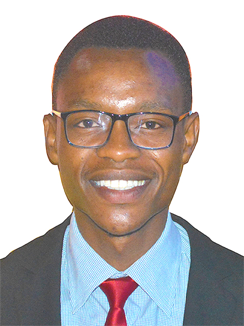 About me: I am a young researcher who is passionate about the New Urban Agenda and sustainable urban development. Currently, I am the Executive Director of Nairobi Urban Creators, which is a youth-based organisation in Nairobi, Kenya. I am also a Local Pathways Fellow with United Nations Sustainable Development Solutions Network Youth where I am implementing an urban project on inclusive, participatory and representative decision-making in cities. This urban project seeks to find out how civic engagement and participation can be an enabler for sustainable urban development.
About me: I am a young researcher who is passionate about the New Urban Agenda and sustainable urban development. Currently, I am the Executive Director of Nairobi Urban Creators, which is a youth-based organisation in Nairobi, Kenya. I am also a Local Pathways Fellow with United Nations Sustainable Development Solutions Network Youth where I am implementing an urban project on inclusive, participatory and representative decision-making in cities. This urban project seeks to find out how civic engagement and participation can be an enabler for sustainable urban development.
What I am doing with my support: The Future Earth travel grant helped me to attend the International Conference for Sustainable Development (ICSD) at Columbia University in New York City. During the conference, I presented the poverty eradication programme of my organisation during the poster session. I discussed the execution of this programme and the significance of it to community organisations, decision-makers and individual citizens who work together to improve the quality of life within the urban space.
In my preparation for, during and after the ICSD, I actively promoted Future Earth through social media, organisation websites and flyers. Secondly, the poster included a “funded by” tagline at a conspicuous section that was written “Participation in the ICSD was made possible by Future Earth Travel Grants for Early Career Professionals."
What’s next: I look forward to networking with more early career professionals and sharing my experience during the ICSD on the Open Network. My organisation will also host the second National Urban Youth Forum on 31 October, on the occasion of the World Cities Day.
Claudia Munera Roldan
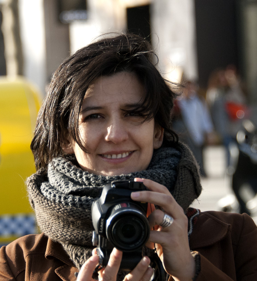 About me: I am a researcher working on adaptive governance for protected areas in Colombia. I focus on identifying adaptation pathways and knowledge management around the decision-making context. My objective is to facilitate strategic thinking and collective learning that could help us to understand and navigate future environmental changes.
About me: I am a researcher working on adaptive governance for protected areas in Colombia. I focus on identifying adaptation pathways and knowledge management around the decision-making context. My objective is to facilitate strategic thinking and collective learning that could help us to understand and navigate future environmental changes.
What I am doing with my support: As a Future Earth travel grant recipient, I attended the II Conference of the Programme on Ecosystem Change and Society (PECSii) in Oaxaca, Mexico. At the conference, I co-chaired the Symposium “Governance challenges for climate adaptation in protected areas management,” and was a speaker in the symposium “Putting transformative adaptation into action.” The conference was an excellent platform to engage with other colleagues and early career professionals. I appreciated the chance to collaborate with those attending the conference and identify ways to spread Future Earth’s vision of transformation towards sustainability.
What’s next: The work keeps going after the conference, and I hope to continue exchanging perspectives, ideas and learnings with other Future Earth members who have attended PECSii. I am looking forward to spreading our research and/or to enhancing collaboration towards a more effective policy-science interface and a more sustainable world.
Follow me on twitter (@Mune_rita) to help spread the word.
Read a blog fromClaudia Munera Roldan on her experiences at the conference in Mexico here.
Anna Ruban
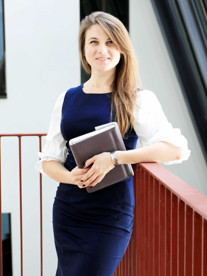 About me: I am a researcher who studies how market-based tools (like environmental auditing) were introduced and developed in Post-Soviet countries, particularly Ukraine. The outcomes of my research showed that environmental auditing has a heterogeneous nature in Ukraine as it comes in mandatory and voluntary forms. These two types of environmental auditing serve different purposes and are used in different occasions.
About me: I am a researcher who studies how market-based tools (like environmental auditing) were introduced and developed in Post-Soviet countries, particularly Ukraine. The outcomes of my research showed that environmental auditing has a heterogeneous nature in Ukraine as it comes in mandatory and voluntary forms. These two types of environmental auditing serve different purposes and are used in different occasions.
What I am doing with my support: The Future Earth travel grant helped me attend the 2017 Lund Conference on Earth System Governance on 9 to 11 October. I was one of the speakers at a session entitled “Science and Activism – Knowledge in Action” on 9 October. Every speaker gave a 15-minute presentation, and, at the end, we opened the floor for questions. The discussion was very fruitful as we found overlaps and connections between the three presented research projects. This gave me an understanding of a possible interdisciplinary cooperation with other researchers for future studies.
This conference helped me to expand my professional network. I used every opportunity to communicate with other participants, attended as many sessions as possible, exchanged business cards and connected with others on academia.edu and google scholar. Moreover, I crystalised my ideas for a post-doctoral project proposal, and I have already started working on it. I am looking forward to a new step in my academic career.
What’s next: I promoted the Future Earth in several ways during the conference (in my presentation and by tweeting) and after (two news items and a promotional article). Moreover, I will write an article on the Future Earth travel grant opportunity on my website.
Samiya A. Selim
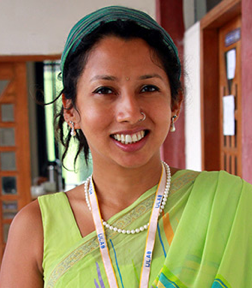 About me: I have been working as the Director of the Centre for Sustainable Development (CSD) at the University of Liberal Arts Bangladesh (ULAB) since last year. Prior to that, I completed my Ph.D. in marine ecology and have worked in the United Kingdom for nine years in the field of environment conservation and sustainable development.
About me: I have been working as the Director of the Centre for Sustainable Development (CSD) at the University of Liberal Arts Bangladesh (ULAB) since last year. Prior to that, I completed my Ph.D. in marine ecology and have worked in the United Kingdom for nine years in the field of environment conservation and sustainable development.
What I am doing with my support: The Future Earth travel grant allowed me to successfully network with other scientists working in the social-ecological domain of marine ecology and sustainability at IMBIZO 5, in Bengali, Bangladesh. I used this opportunity to promote Future Earth to the group of 150 scientists, practitioners and academics who were present. Being part of the Future Earth Ocean Knowledge-Action Network will allow me to come across several funding and networking opportunities online through the Open Network.
What’s next: Part of my current work is focused on the Sustainable Development Goals (SDG) and building partnerships with research academics and representatives from civil society, so we can start mobilising the research needed to meet the SDG targets in Bangladesh. One of my current functions is working on SDG 14, and I will now use the connections I have built at IMBIZO 5 to start international collaborations and building projects on sustainable aquaculture, under the threats of climate change. I will also promote joining Future Earth’s early career networks with my connections in Bangladesh.
Imran Shahid
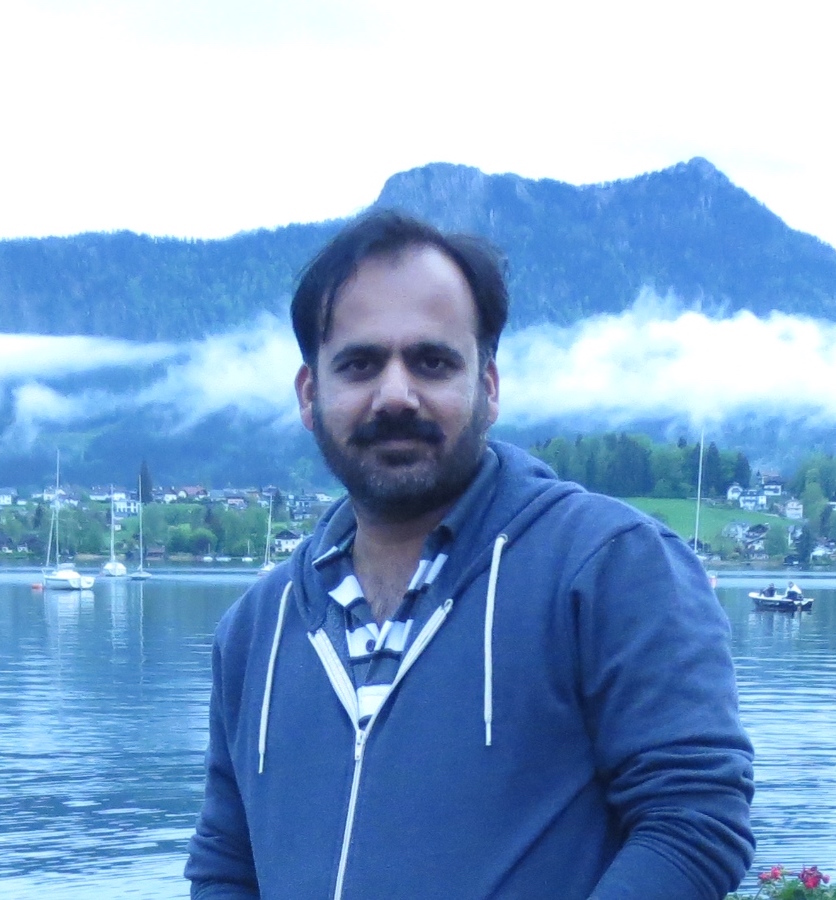 About me: Currently, I am working at the Institute of Space Technology (IST) in Islamabad, Pakistan. Before joining IST, I received my Ph.D. in 2011 from the Vienna University of Technology in Austria. In 2007 I was a Young Scientist Summer Fellow (YSSP) at the International Institute for Applied System Analysis (IIASA) also in Vienna. Here at IST, my research is focused on air quality monitoring, aerosol and cloud interaction, air pollutant emissions from traffic and biomass burning. We are working on the role of air pollutants in dense South Asian winter fog with the help of International Centre for Integrated Mountain Development (ICIMOD) in Nepal and other regional partners.
About me: Currently, I am working at the Institute of Space Technology (IST) in Islamabad, Pakistan. Before joining IST, I received my Ph.D. in 2011 from the Vienna University of Technology in Austria. In 2007 I was a Young Scientist Summer Fellow (YSSP) at the International Institute for Applied System Analysis (IIASA) also in Vienna. Here at IST, my research is focused on air quality monitoring, aerosol and cloud interaction, air pollutant emissions from traffic and biomass burning. We are working on the role of air pollutants in dense South Asian winter fog with the help of International Centre for Integrated Mountain Development (ICIMOD) in Nepal and other regional partners.
IST is an educational institution that imparts specialised education in space and related science to bring nations on par with the international community. The Geospatial Research and Education Lab (GREL) has been established at the Department of Space Science at IST with the vision of doing quality research and imparting state of the art education in emerging fields.
What I did with my support: Future earth’s travel grant enabled me to attend the joint assembly of the International Association for the Physical Sciences of the Oceana (IAPSO)-International Association for Meteorology and Atmospheric Sciences (IAMAS)-International Association for Geomagnetism and Aeronomy (IAGA) that was held from 27 August to 1 September 2017. It was a great opportunity for me. The joint assembly was a mega event and brought together about 1000 participants in the fields of atmospheric science, meteorology, geodesy, Geographic Information Systems (GIS), physical science and oceanography. I gave a talk on “Source apportionment of PM10 in South Asian Mega City” and highlighted the problems associated with sustainable development in developing countries like Pakistan. Pakistan is among the countries most vulnerable to climate change impacts in terms of extreme weather events like floods and heat waves.
What’s next: This event not only enhanced my knowledge and skills but also provided me with an opportunity for networking to bridge the gap between the developing and developed world and scientific and social communities to learn from their experience. By collaborating with the international community, my colleagues and I will have the chance to promote sustainability science and devise adaptation strategies to combat climate change in Pakistan by organising workshops, seminars and capacity building trainings under the Future Earth umbrella.
Svenja Tidau
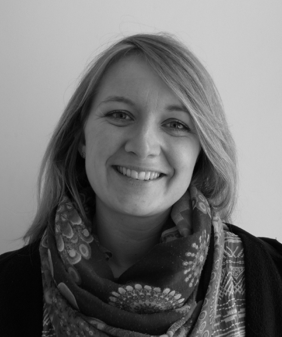 About me: In my PhD I study the behavioural effects of anthropogenic ocean noise on the European hermit crab Pagurus bernhardus at the University of Plymouth, UK and the Galway-Mayo Institute of Technology, Ireland funded by the European Union Erasmus Mundus Joint Doctoral Programme on Marine Ecosystem Health & Conservation. Prior to the PhD, I worked in nature conservation, education and monitoring. I hold a BSc in political science with a focus on sustainable development and an Erasmus Mundus MSc in Environmental Sciences, Policy and Management.
About me: In my PhD I study the behavioural effects of anthropogenic ocean noise on the European hermit crab Pagurus bernhardus at the University of Plymouth, UK and the Galway-Mayo Institute of Technology, Ireland funded by the European Union Erasmus Mundus Joint Doctoral Programme on Marine Ecosystem Health & Conservation. Prior to the PhD, I worked in nature conservation, education and monitoring. I hold a BSc in political science with a focus on sustainable development and an Erasmus Mundus MSc in Environmental Sciences, Policy and Management.
What I did with my support: The grant supported me to attend the XXVI International Bioacoustics Council Meeting in Haridwar, India where I gave my second presentation at an international conference to a hugely interdisciplinary audience. The conference brought together around 200 researchers, consisting largely of scientists working on animal communication or behaviour, some ecologists, sound archivists, a couple of computer scientists and representatives from governmental research authorities. As the conference took place in Haridwar, there were many attendees from Indian universities and research institutions. This was a particularly memorable experience because most conferences are dominated by participants from the “Western countries” and one gets few insights into research carried out in other parts of the world.
Though there was no dedicated early career meeting there were many young researchers at the meeting and we quickly bonded informally over lunch, organised dinners, explored Haridwar together and commuted from the student accommodation to the conference venue with local auto rickshaws. Not only did I learnt a lot about vocalisation and acoustic communication in animals across diverse behaviours and the anatomic and physiological foundations of these, but I also practised my presentation and communication skills, expanded my professional network and gained first insights into a fascinating country.
What's next: In 2018 I entered the final year of my PhD and I am working on publishing my results as well as conducting more experiments. After my PhD, I would like to keep on studying the impact of humans on marine habitats through the lens of animal behaviour which integrates my university degrees and the practical experience I gained while working in nature conservation. In the mid-term, I would like my research to directly help inform, design and implement management measures to mitigate if not avoid anthropogenic impacts and thus contribute to the transition towards a sustainable society. Overall, I think the participation and engagement in networks such as Future Earth is important to share our specialised knowledge as researchers with other scientists as well as the wider public.
Ethemcan Turhan
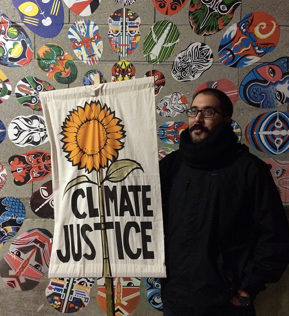 About me: I am a postdoctoral researcher at the Swedish Royal Institute of Technology (KTH) Environmental Humanities Lab. I received my Ph.D. with a focus on the political ecology of climate change adaptation from the Institute of Environmental Science and Technology (ICTA) at the Universitat Autonoma de Barcelona (UAB) in Spain. Before moving to Stockholm, I was a Mercator-IPC fellow from 2014 to 2015 on climate change at the Istanbul Policy Center at Sabancı University in Turkey. My main research interests are climate change adaptation, migration in the context of climate change and environmental social movements. Recently, I have also focused on the notion of energy democracy.
About me: I am a postdoctoral researcher at the Swedish Royal Institute of Technology (KTH) Environmental Humanities Lab. I received my Ph.D. with a focus on the political ecology of climate change adaptation from the Institute of Environmental Science and Technology (ICTA) at the Universitat Autonoma de Barcelona (UAB) in Spain. Before moving to Stockholm, I was a Mercator-IPC fellow from 2014 to 2015 on climate change at the Istanbul Policy Center at Sabancı University in Turkey. My main research interests are climate change adaptation, migration in the context of climate change and environmental social movements. Recently, I have also focused on the notion of energy democracy.
My approach to social science on climate change is deeply rooted in social justice and is engaged with grassroots movements in an attempt to produce socially relevant and useful knowledge. This is mainly because of my engagement as an action-researcher with environmental justice movements in Turkey. Hence, my dual role as an activist-academic pushes me to self-reflect on the roles of scale, agency and multi-level politics. I believe that global environmental justice is a rapidly expanding field of academic inquiry where Future Earth can have a pivotal role.
I have had the opportunity to interact both with the top decision-makers on climate change adaptation in Turkey, as well as the most vulnerable groups on the ground, such as migrant agricultural workers. I believe that different understandings and framings of climate change need to be acknowledged to overcome the inherent injustices. Sustainability gives us both an opportunity and a challenge to question the status quo to address these injustices.
What I will do with my support: Future Earth's early career researcher travel grant allowed me to attend "Environmental Justice 2017 – Looking Back, Looking Forward" conference in Sydney, Australia. During the conference, I presented my work-in-progress about environmental social movements on urban climate change adaptation. The conference attracted both senior and junior researchers, and I expanded my scholarly networks to Oceania and beyond.
What's next: Clive Staples Lewis, the author of The Chronicles of Narnia book series once wrote that “man’s power over nature turns out to be power exercised by some men over other men, with nature as its instrument.” I believe that this could be applied to the case of climate change adaptation, where political decisions can sometimes sideline or ignore the most vulnerable stakeholders. The connections and knowledge that I have built during and after Environmental Justice 2017 conference will definitely contribute to my academic career where I focus on a new, bold, inclusive and transformative notion of sustainability.
Geoffrey Mwangi Wambugu
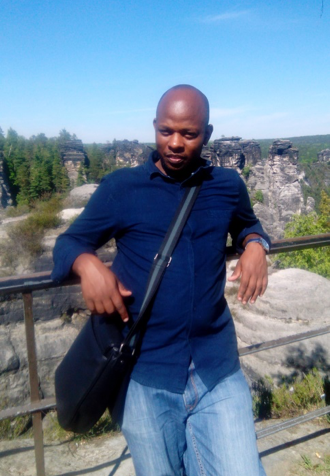 About Me: I am an Assistant Lecturer at Karatina University in Kenya, a researcher in Ecology and an Environmental Consultant. My principal activities include teaching at the university; ecological research in the East African Region; and advising development projects on environmental matters both in the private and public sector. I am in my final year of Ph.D. study at the University of Nairobi, Kenya.
About Me: I am an Assistant Lecturer at Karatina University in Kenya, a researcher in Ecology and an Environmental Consultant. My principal activities include teaching at the university; ecological research in the East African Region; and advising development projects on environmental matters both in the private and public sector. I am in my final year of Ph.D. study at the University of Nairobi, Kenya.
What I did with my Support: My support from Future Earth covered the cost of travel and accommodation from Kenya to Switzerland where I co-organised a workshop on Natural Capital and related concepts. The aim of the workshop was to bring together researchers and practitioners involved in Natural Capital research and applications and to agree on a common definition of the term “Natural Assets” for Future Earth’s Knowledge-Action-Networks. This will help Future Earth align its objectives and priorities to the concept of Natural Capital.
What's next: Part of the workshop’s outcomes include co-authoring a paper on Natural Capital and related concepts. I will also become part of a network of Natural Capital experts, which will help me drive the sustainability agenda in Kenya and Africa forward. This network will enhance my capacity in this field and create a platform for future collaborations in research and outreach.
DATE
December 21, 2017AUTHOR
Future Earth Staff MemberSHARE WITH YOUR NETWORK
RELATED POSTS
Future Earth and UNDP Collaborate to Promote Climate Action Through Behavioral Change
Program Now Available for the Year’s Top Sustainability Science and Innovation Event in Finland
Future Earth Members Join UN Ocean Conference in Barcelona